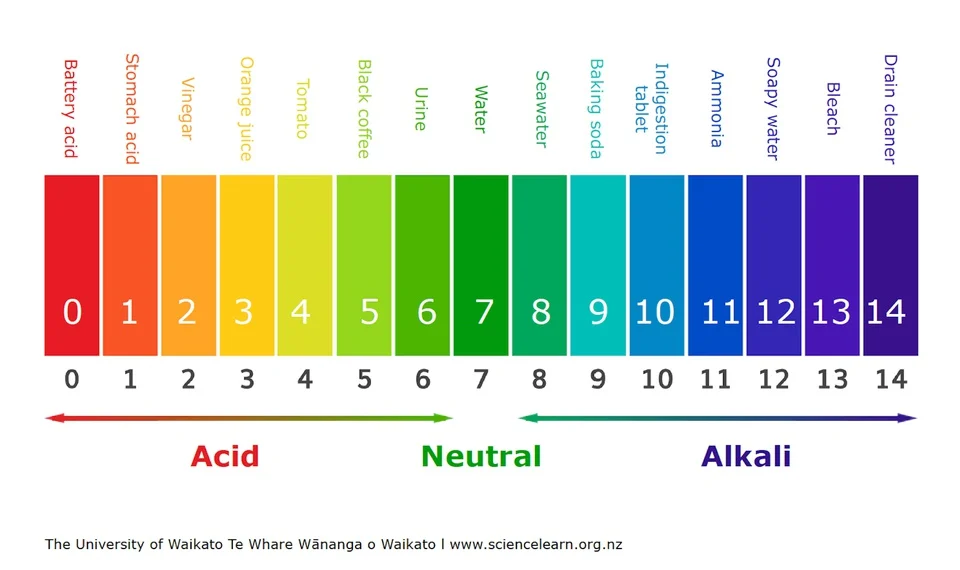![]()
GCSE Chemistry: Crack the Code of Acids, Bases, and Salts in Just 30 Minutes 🔑
Introduction 👋
Are you feeling overwhelmed by the thought of learning about acids, bases, and salts for your GCSE Chemistry exam? Worry not! This quick guide will help you master these essential concepts in just 30 minutes.
Why Understanding Acids, Bases, and Salts Matters 💡
Acids, bases, and salts are fundamental building blocks of chemistry. They play crucial roles in various aspects of daily life, such as food production, cleaning products, and even the functioning of our own bodies. Mastering these concepts will not only help you ace your GCSE Chemistry exam but also equip you with knowledge that will be invaluable in your future academic and professional pursuits.
What are Acids? 🔰
Acids are substances that release hydrogen ions (H+) when dissolved in water. They have a sour taste and can turn blue litmus paper red. Common examples of acids include vinegar, lemon juice, and hydrochloric acid.
What are Bases? 🔶
Bases are substances that contain hydroxide ions (OH-) and have a basic or alkaline taste. They can turn red litmus paper blue. Common examples of bases include baking soda, household ammonia, and sodium hydroxide.
What are Salts? 🔷
Salts are formed when an acid reacts with a base. They are usually colourless, crystalline solids that do not have a sour or basic taste. Common examples of salts include table salt (sodium chloride) and baking soda (sodium bicarbonate).
Quick Tips for Learning Acids, Bases, and Salts 🚀
1. Learn the Key Differences 🤝
- Acids are sour, release H+ ions, and turn blue litmus paper red.
- Bases are basic, contain OH- ions, and turn red litmus paper blue.
- Salts are formed when an acid reacts with a base.
2. Practice with Real-Life Examples 🌟
- Vinegar (acid) + Baking Soda (base) = Salt (sodium acetate) + Water + Carbon Dioxide gas
3. Quiz Yourself Regularly 🧪
- Test your knowledge by answering questions and quizzes online or with a tutor.
FAQs ❓
📚 How can I improve my understanding of acids, bases, and salts quickly?
⏱️ Practice regularly, use real-life examples, and quiz yourself to reinforce your learning.
📚 Are there any online resources for learning about acids, bases, and salts?
🌐 Yes, there are numerous resources available online, such as video tutorials, interactive quizzes, and online tutoring services like Tutor GP.
📚 What are some common acids and bases found in our daily lives?
🍋 Common acids include vinegar, lemon juice, and carbonic acid (found in fizzy drinks). Common bases include baking soda, household ammonia, and sodium hydroxide (lye).
📚 How can I identify acids and bases?
🔬 Acids have a sour taste, release H+ ions, and turn blue litmus paper red. Bases have a basic taste, contain OH- ions, and turn red litmus paper blue.
📚 What is the role of salts in our bodies?
🦴 Salts, such as sodium chloride and potassium chloride, play essential roles in maintaining the balance of fluids in our bodies and regulating nerve impulses.
📚 How are acids and bases used in cleaning products?
🧼 Acids, such as citric acid and phosphoric acid, are used in cleaning products to dissolve dirt and grease, while bases, such as sodium hydroxide and ammonia, are used to neutralize odours and dissolve stains.
📚 How can I prepare for my GCSE Chemistry exam on acids, bases, and salts?
📝 Review your notes, practice problems, and seek help from a tutor if needed. Focus on understanding the fundamental concepts and practicing with real-life examples.
📚 How can Tutor GP help me with my GCSE Chemistry?
🎓 Tutor GP offers personalised online tuition for GCSE Maths, GCSE Science, and A-Level Physics, among other subjects. Our expert tutors can help you understand complex concepts, provide practice exercises, and offer valuable study tips to help you achieve academic success.




